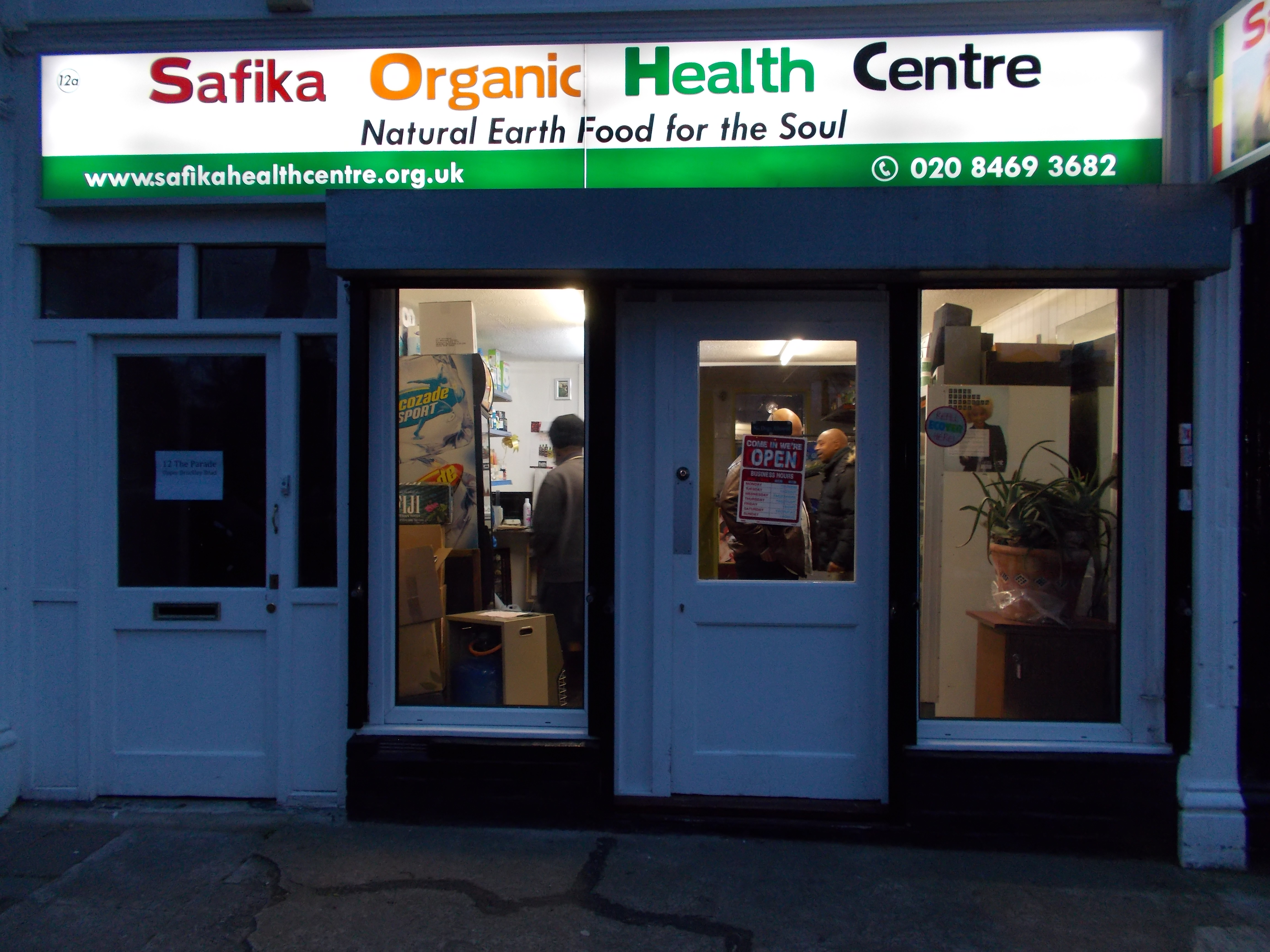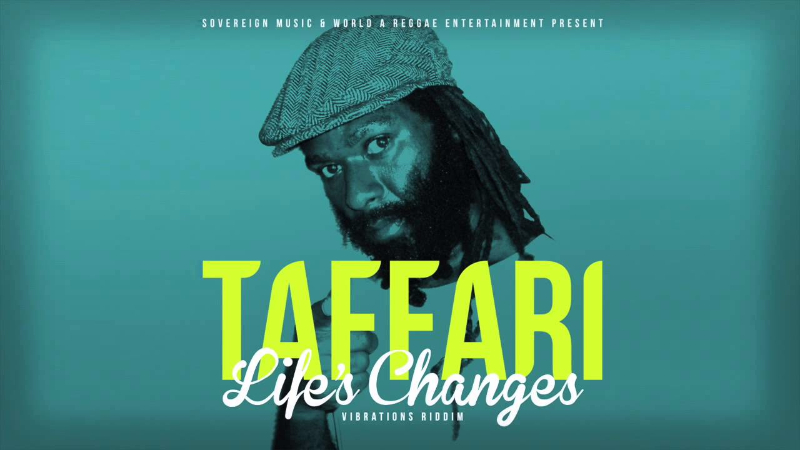Liberation Corner: By David Myles
Greetings Vision viewers,
After a hiatus, I am pleased to announce the revival of the Liberation Corner column. It is wonderful to be reunited with the Vision; though this time with the Canadian edition of Vision. What better way to reinstate the ethos of Liberation Corner than to interview a couple who are trying to take our health to a higher dimension of consciousness.
In the last 5 years I have seen several Afrikan 1 health food shops emerge in Britain. Some were existing outlets and began to focus more on health food products, while others like Safika started their journey as a health food shop from inception. I spoke to the owners of a health food store; Jah Sun Ray and Kwame about their business.
Could you both give our readers some background knowledge about what your business entails?
Jah Sun Ray: My name is Sister Jah Sun Ray and this is Sakaifa Organic Health Centre. I am responsible for managing the store. My role in terms of my professionalism is a community development worker. I am also a mental health practitioner specialising in mental health and wellbeing. The work that I do is around mind, body and soul. Sakaifa Organic Health Centre is natural earth foods for the soul. It’s about making the connection between the food that we eat and the physical impact that food has on us.
Kwame: I have always wanted to do for self because that is part of Marcus Garvey’s teaching. The vision around health foods came from me adapting a lot of healthy stuff and staying away from meat and salt and all that fancy stuff that is shown on TV which I know is not good for you. So I had this vision to do something around food, which is healthy living because a lot of our people are dying from GM (Genetically Modified) food. When I met up with my wife and I showed her the intention, she had exactly what I needed to put the package together. I always had this plan and she had the knowledge and skills to make it happen.
What inspired you to set up a health food?
Kwame: Wanting to do something for my people within the community. Because when you look around a lot of people think that the only thing we are capable of doing is having hair shops and Caribbean takeaway shops.
Could you explain the name of your shop? What does Sakaifa mean?
Kwame: I was in South Afrika during the world cup and I was speaking with some indigenous South Afrikan people and they were talking about when they started out as a group and had
a small amount of success, but for some reason or not they weren’t grounded and so they spilt. But during this, they came to a realisation that if they were united they became more resourceful and so when they reformed and called themselves Sakaifa; which means we have arrived in terms of their thinking and where they need to go. This name just fits with what we are about.
Jah Sun Ray: And when you look into it; the name has the same meaning in Kenya and Botswana. If you research the name you will find that in South Afrika it is associated with diamond mining. This is what it has been primarily associated with.
What type of items is stocked at your outlet?
Jah Sun Ray: We have a lot of supplements like Mardindina 2 and foods like black rice, red rice. We have for example hemp oil, hemp jam and coconut sugar, spirulina pasta. We have a beautiful range of flours; we have Egyptian flour, spelt flour, hemp flour and wholemeal spelt flour. We also have box herbal teas; mints, lemon and moringa and sell herbs like St Johns wart, dandelion, sour sop leaf. When we first opened we had the very basics; that was non diary milk, bread, your bitters, your tonics, the basics. What you see now in the store is very much determined by people’s requests. We also stock seasonal vegetables and fruits generally throughout the summer like coconut juices which Kwame cuts and prepare right in front of customers with the straw for you to use.
In the past you have held workshops such as the coconut workshop where you have specialists who teach the community how to make coconut milk. What other workshops do you run?
Jah Sun Ray: Initially when we opened we had the coconut workshop and it went down a treat. Then we began running cooking classes for products we sell like the red rice and black rice.The last workshop we had was with practitioner Stephen Ssali around a product called Mardindina, which was brilliant. Prior to that, we have had soap making workshops and a juicing workshop. We have had many workshops and I wanted to create a place where people could find out about sickle cell anaemia, diabetes and prostate cancer. These issues are really effecting black people, so it is important to have these workshops.
What has been the highlights of the many workshops you have held?
Jah Sun Ray: I would say the coconut workshops with Prophet Newton. One of the highlights was seeing someone that had attended the workshop and seeing them have no clue or idea how to do whatever it is and then come along to the third workshop which is hands on and people get to grater the coconut and mix the milk until it becomes oil. People are encouraged to taste it and mix other foods.
• Why do you think it is important to learn how to make coconut oil and milk?
Jah Sun Ray: My mum and dad taught us how to cook and prepare our food and as time has went on the emphasis in the UK is more about instant food and processed food. The reason why it is important to make your own coconut milk, almond milk and black berry jam is because they may come a time when these convenient food items are not readily available because as the food becomes more convenient you have to use more steroids and all sorts of GM and synthetic stuff which is resulting in our young women getting cysts on their ovaries and our young men becoming impotent.
I am aware that health agencies used to advise people to consume less coconuts. Historically, many people in Asia, the Americas, and Afrika ate and continue to eat coconuts. In recent years coconut oil has dramatically grown in popularity and even some major supermarkets are stocking coconut oil in abundance. Coconuts are now being labelled as a superfood. What do you think has been the change in how coconuts are perceived and promoted?
Jah Sun Ray: In the time that I was growing up, coconut was deemed not a good oil. One of the reasons behind this has been related to the solidification of the oil when it gets cold. The important thing to recognise is to use it at its different stages. The issue we have is that it was not profitable for mainstream organisations to inform us about the health benefits of coconuts at the time because it was about sunflower oil and hydrated oils. For me what has been the changing factor and raising the awareness of coconuts has been the internet and the ease of finding that information. Also people travel more and see other countries for themselves.
You may be the only Afrkian owned health food shop in the south east of London and I can only think of three other health oriented shops in London. Why do you think there are so few Afrikan owned health food shops in London and Britain generally?
Kwame: It is not really a fast food turn over. If it was a fast turn over it would be a hair shop or takeaway shop. But a lot of people are now realising that eventually this will be a fast turn over once we can prove to people that the poison that they are buying is not good for them. Another reason to consider is that rent is not cheap in London and then you have to buy the products.
Sister Jah Sun Ray and Brother Kwame’s shop is situated at Sakaifa Organic Health Centre
At The Parade, 12A Upper Brockley Road, Lewisham, London SE4 1SX, England, United Kingdom.
Phone: 0208 496 3682 *If you are calling from outside the UK, dial 00 for the access code and 44 for the country code.
Opening times: 10:30am – 20:00 Monday – Saturday.
Sister Jah Sun Ray also hosts a community talk show every Saturday from 10am – 13:00 on Galaxy 102.5 FM in London, or globally via http://galaxyafiwe.com/
‘Afrikan’ is the pan-African substitute of the common spelling African.
For more information about Mariandina supplements visit http://www.mariandina.com/




